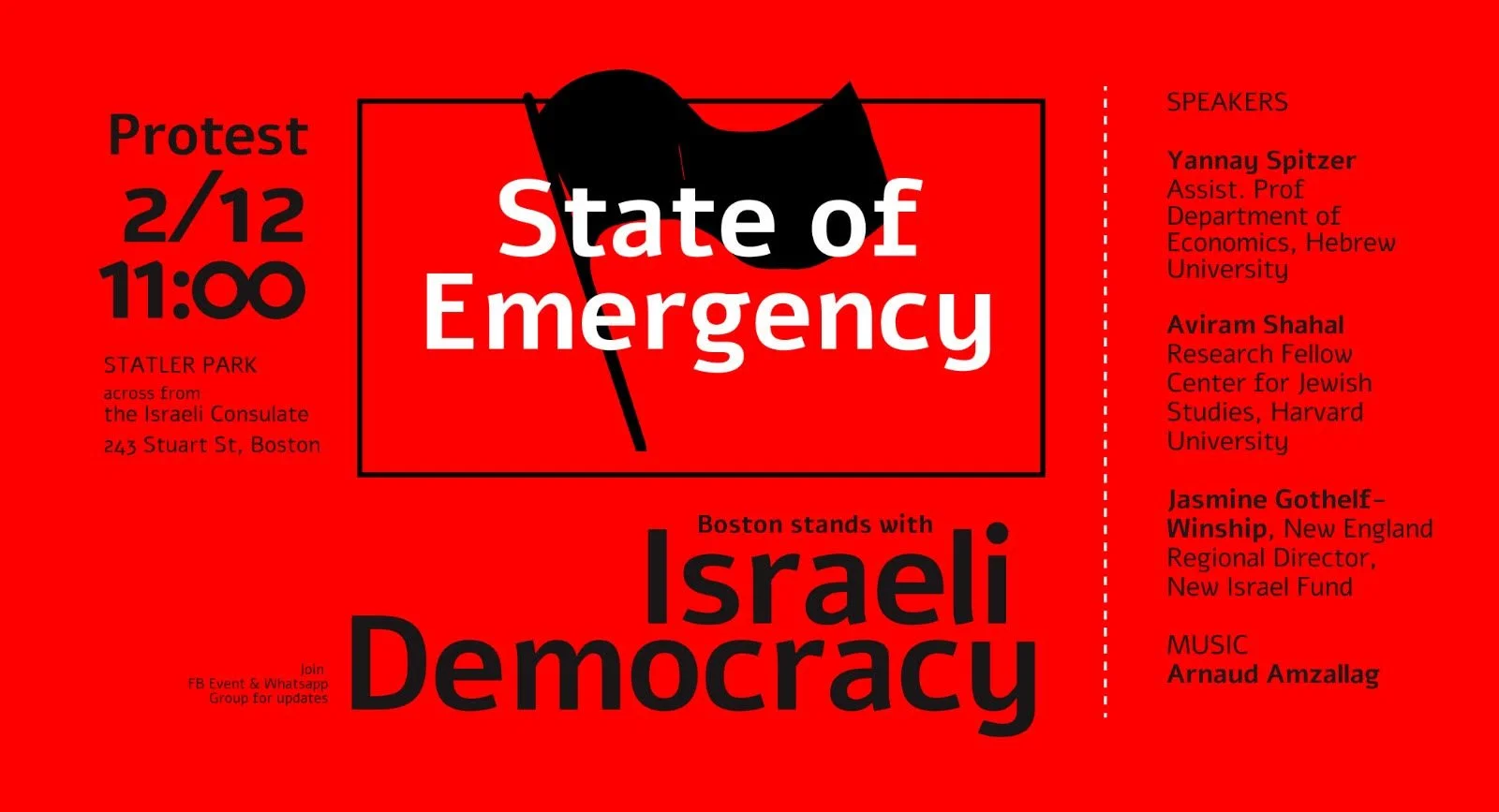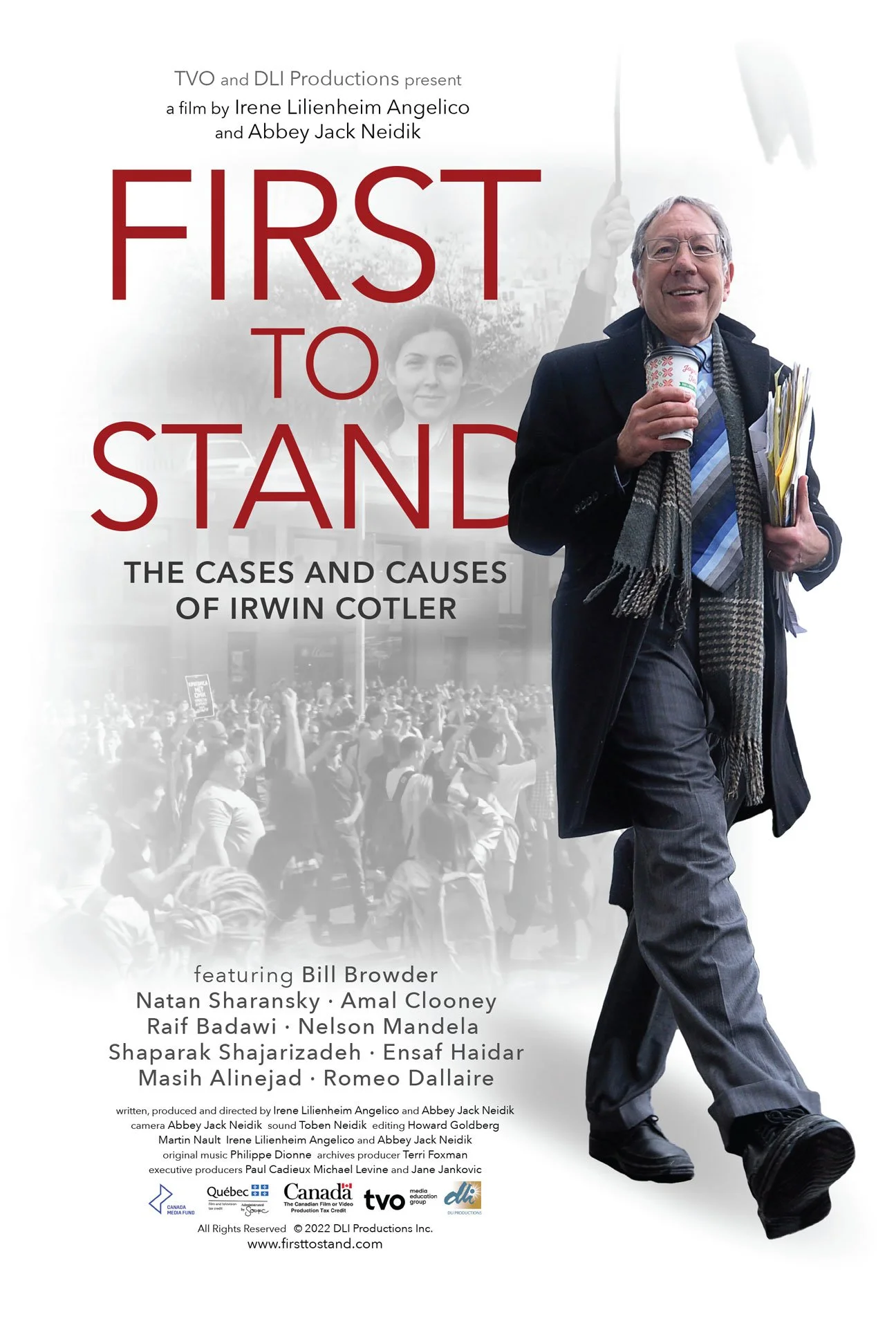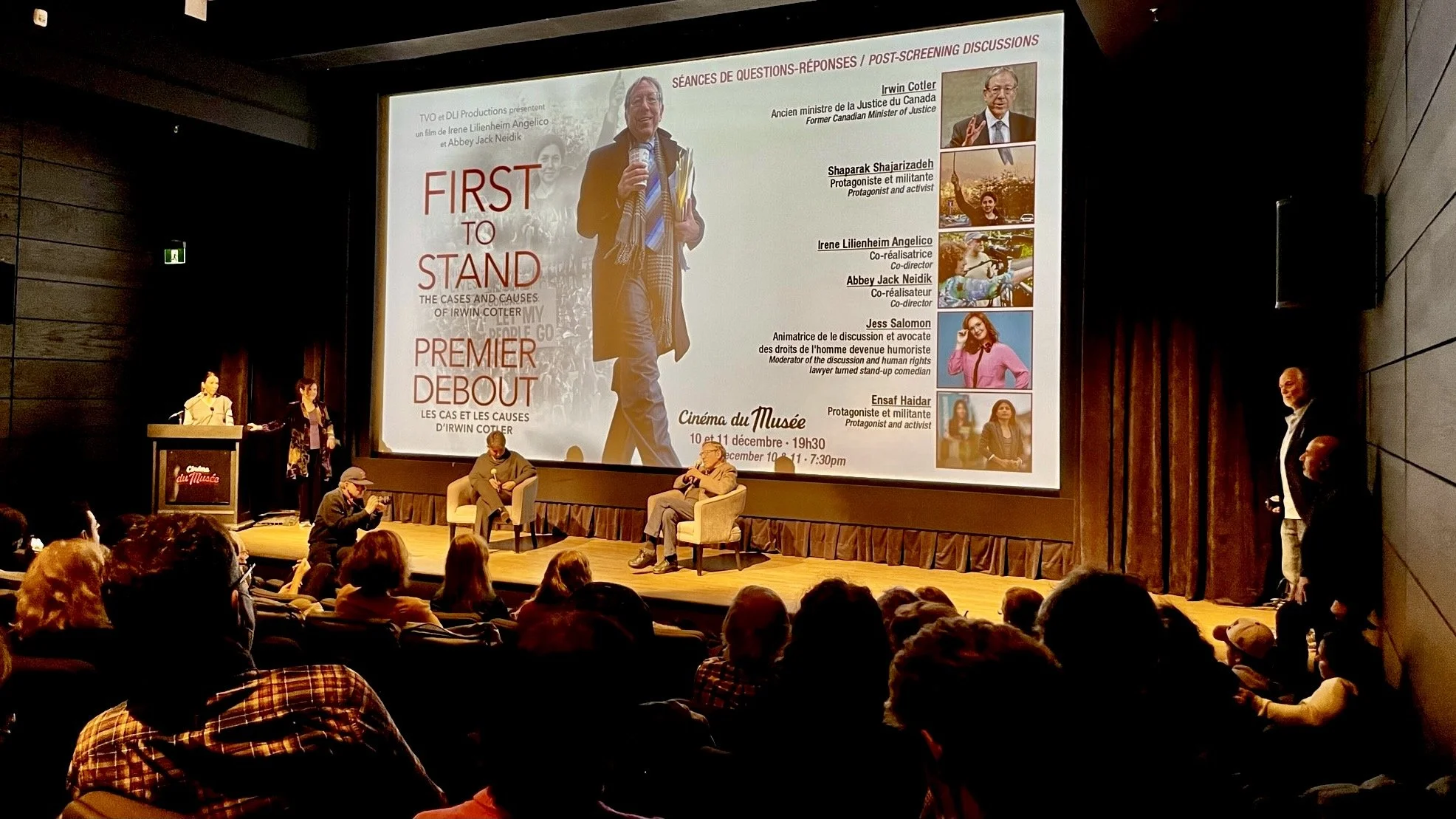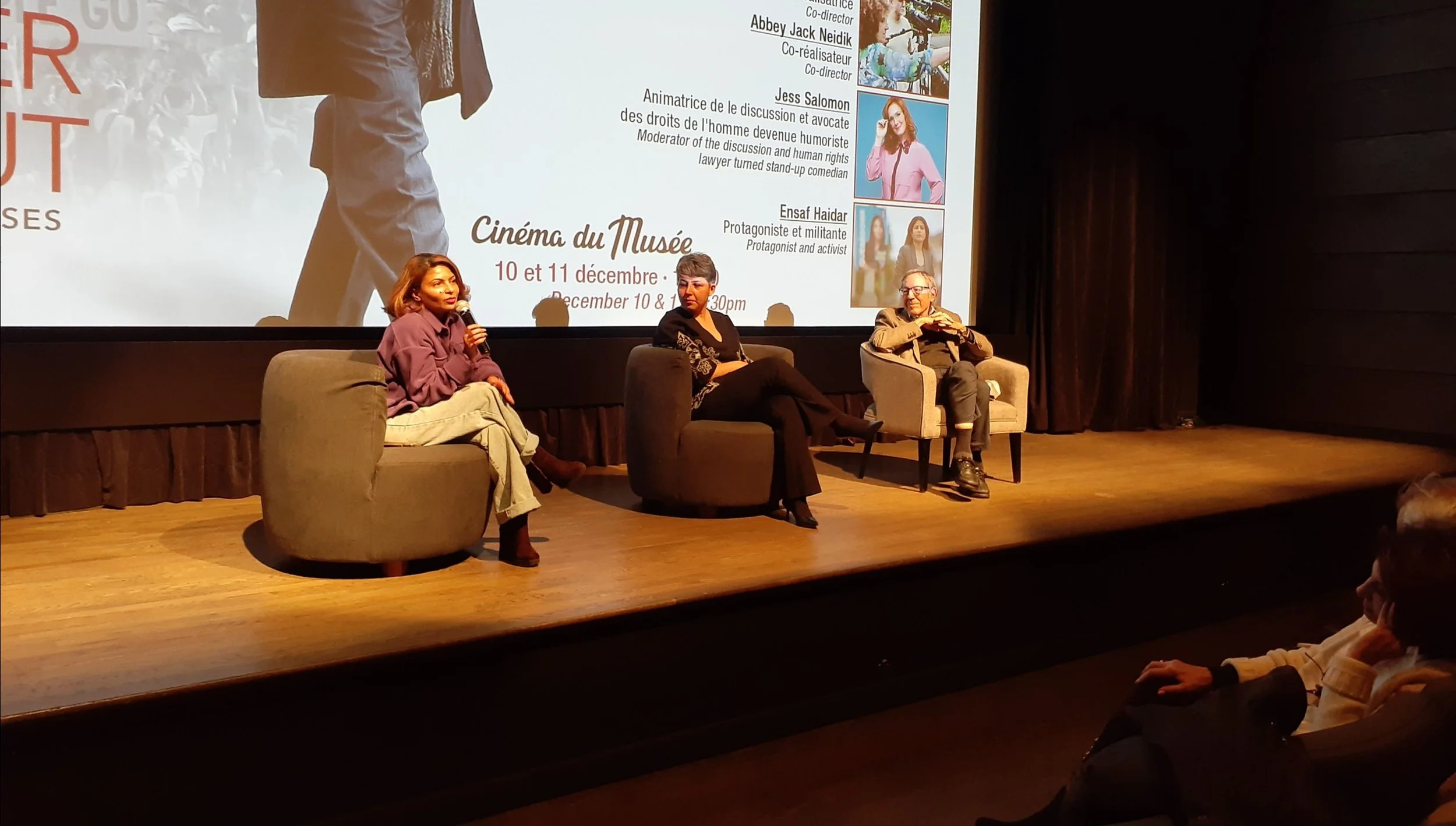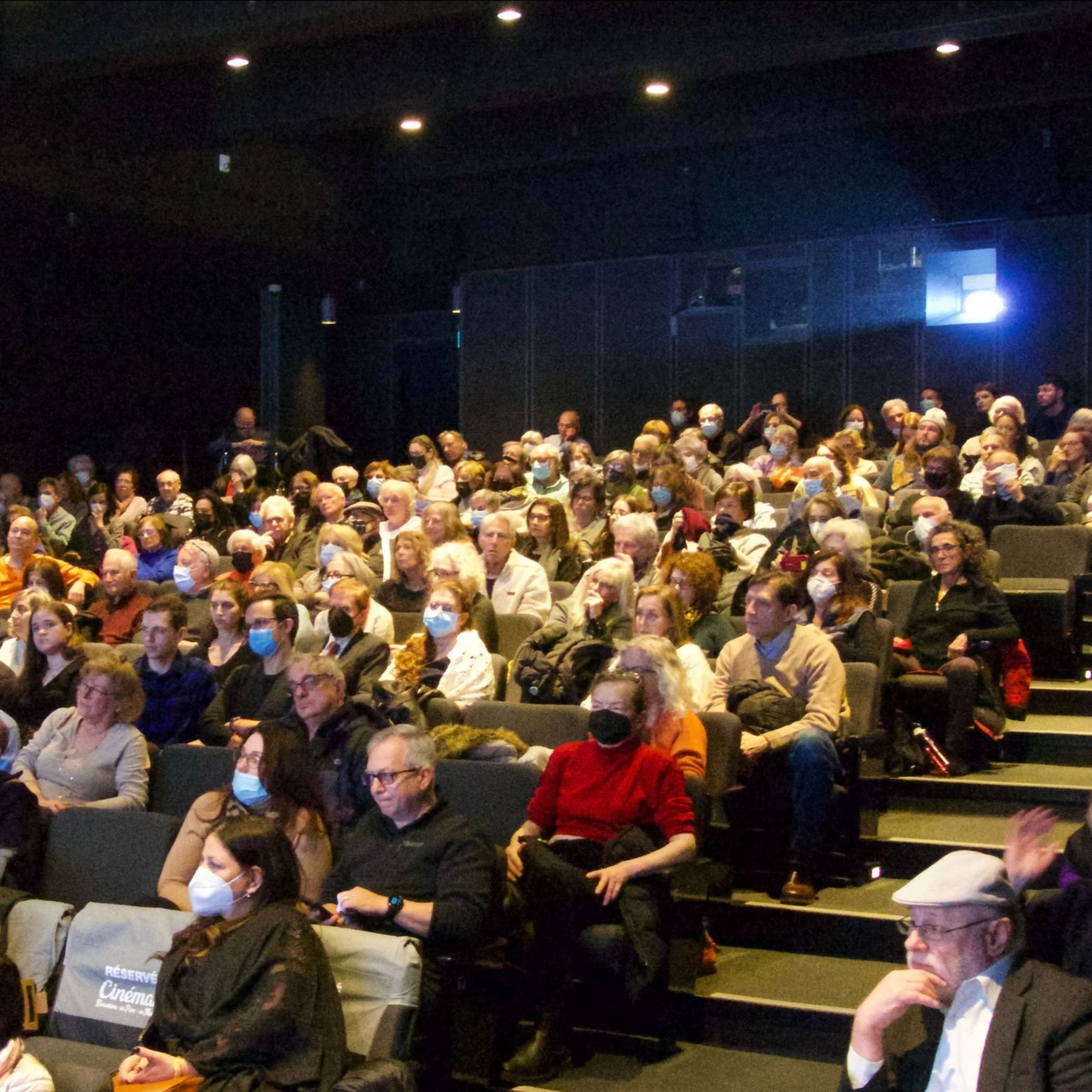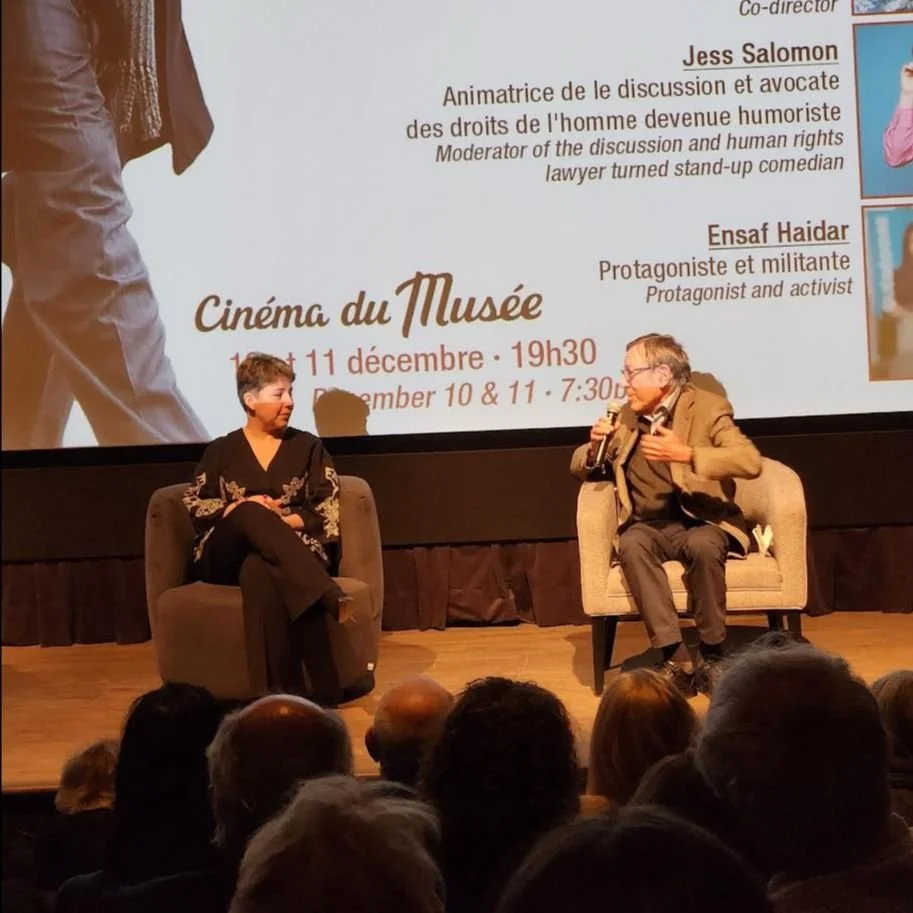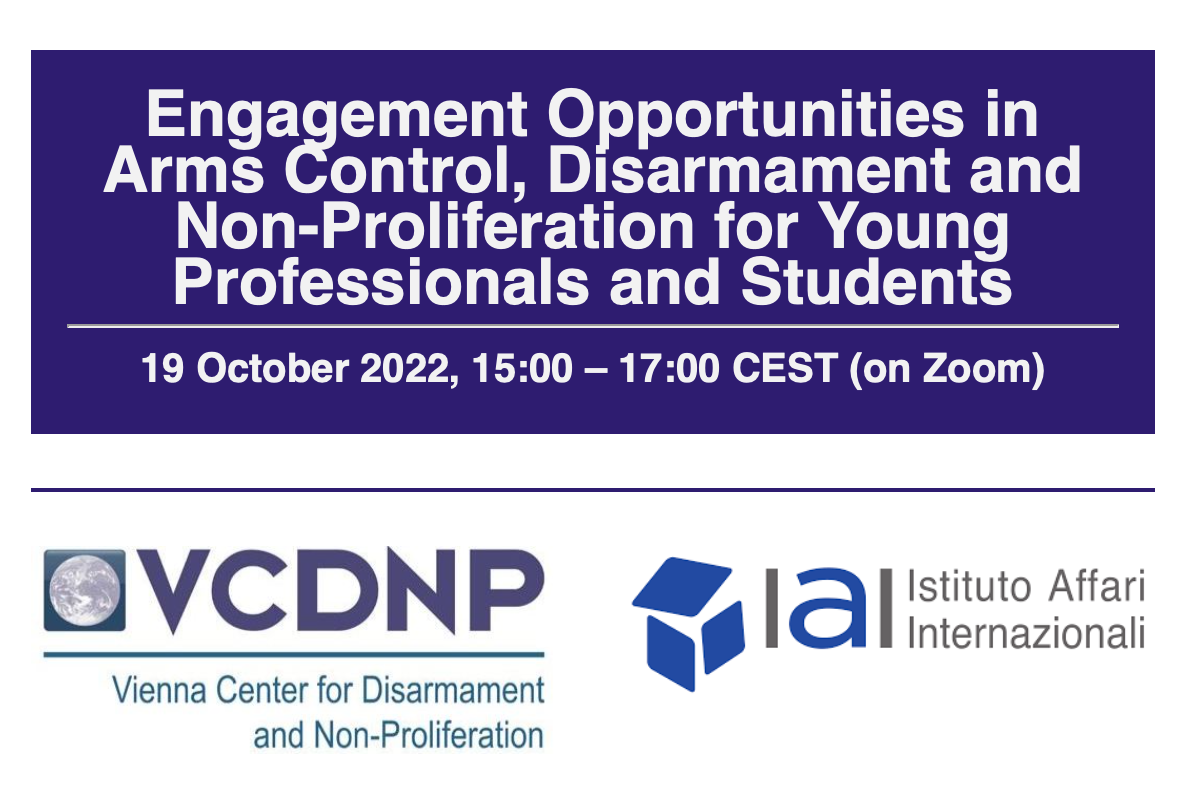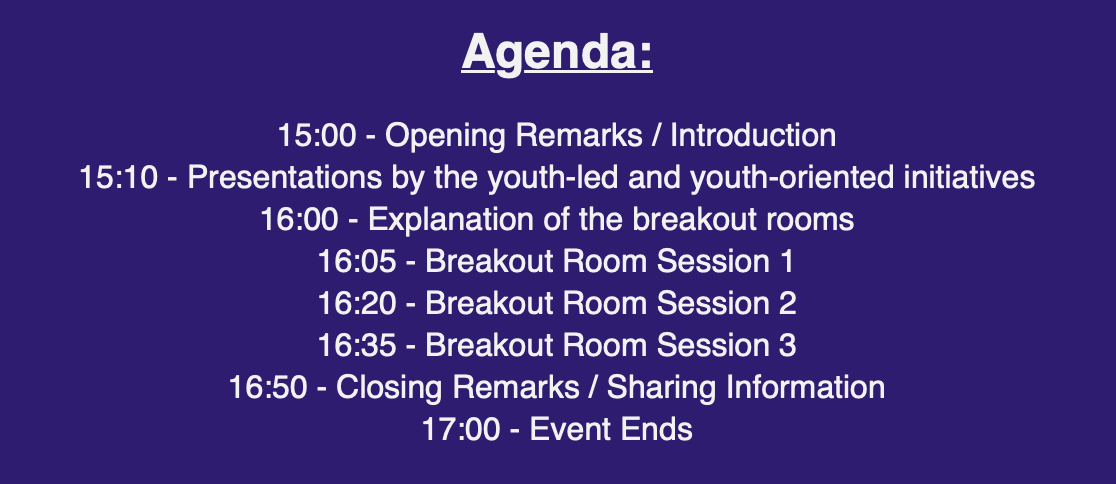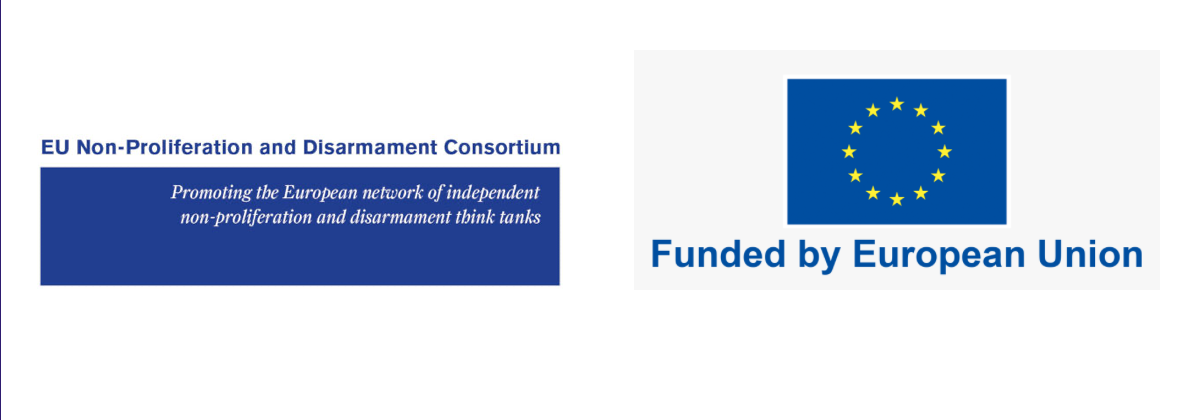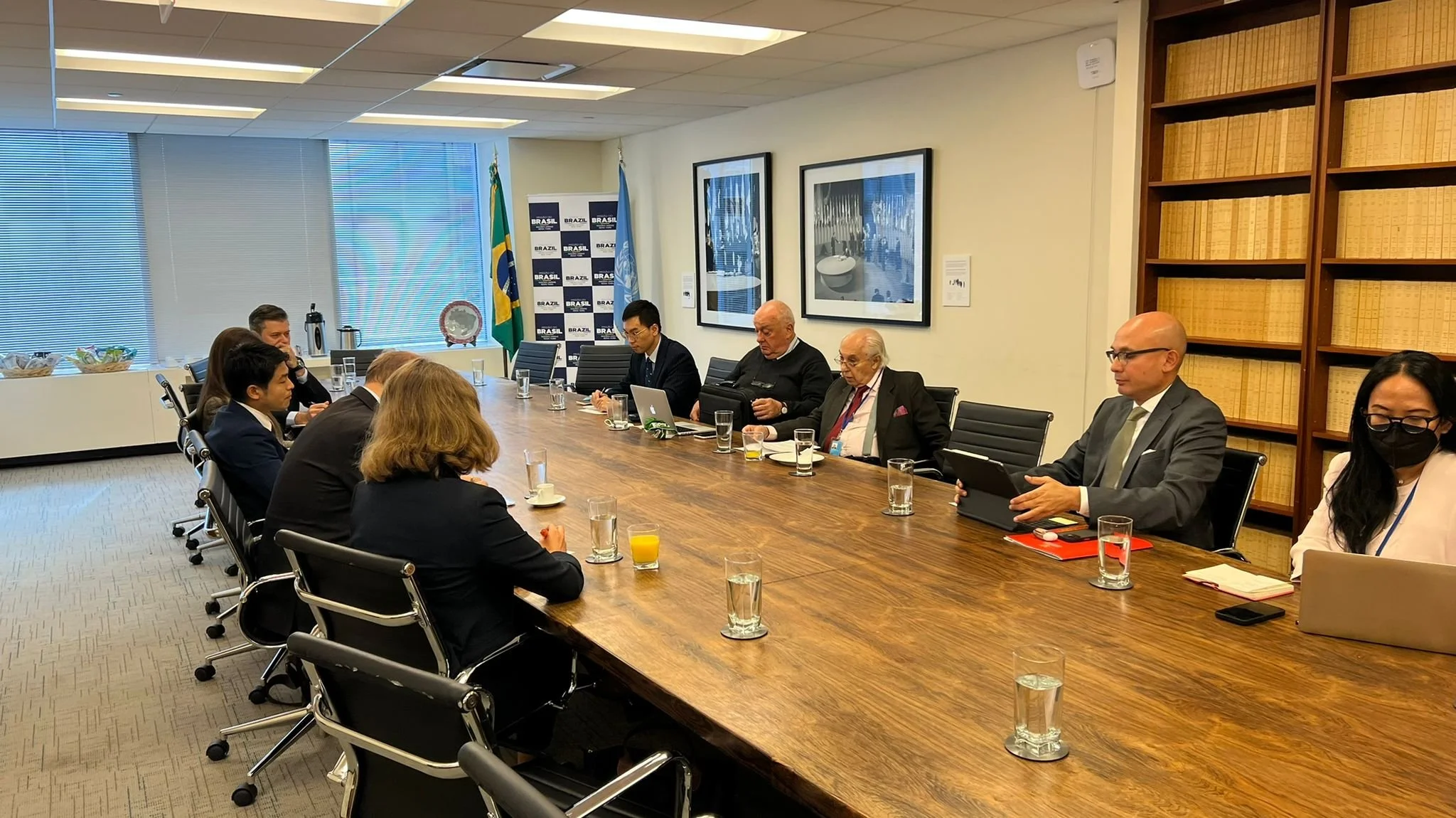New HRF Podcasts: March Recap
Episode #78 - When Systems Fail: Understanding the Intersection of Authoritarian Regimes & Modern Slavery
This episode, recorded at the 2022 Oslo Freedom Forum (OFF), explores the correlation between the rise in authoritarian regimes and modern slavery. Participants discuss how slavery has been used to maintain power and how affected communities have stood in resistance to change in the future. Panelists include:
Amy Rahe, managing director at the Freedom Fund & anti-trafficking advocate Filmon Debru, Eritrean human trafficking survivor Leonardo Sakamoto, Brazilian journalist & anti-forced labor advocate Jessie Bruner, strategy & program development associate director at the Center for Human Rights & International Justice at Stanford University
The First Arab-Israeli Rhodes Scholar
Lian Najami is the first Arab-Israeli Rhodes Scholar, an inclusion advocate, and the youngest member on two executive boards of Israeli NGOs: Mabat and 50:50 Startups. Fluent in five languages, she was featured at the 2016 Forbes 30 under 30 summit in Israel for her leadership role within the Arab community and served in the US Senate as a Lantos Congressional Fellow in 2017.
A Zoom link will be sent to those who register here: https://guestli.st/743826
The session will also be live-streamed on our Facebook page at https://www.facebook.com/Hillel.Harvard.
Harvard Hillel would like to acknowledge the generosity of the Brachman Family of Columbus Ohio in sponsoring this event. We are grateful to Merom '58, Judith '60, Lavea '84, Sarai '86, and Shael '90.
The VII Foundation newsletter (Frontline Report March)
Alona says goodbye to her husband Nikoli as she flees westward in Ukraine with her child on March 7, 2022. Photo by Ron Haviv / VII.
The challenge of living in a world where beliefs and actions are increasingly out-of-sync with facts and realities is never ending. The VII Foundation’s mission is to harness the power of first-person visual journalism to expose these truths by putting the story into the hands of people living with those realities.
Dear Friends,
After photographing war, injustice, and inhumanity of many kinds for two decades, I thought there were few acts of atrocity beyond my imagination. I was wrong; I could not imagine Ukraine.
In January, in our first report, I wrote that "when we turn on our screens and look at our news feeds, we witness politicians of every stripe constantly changing facts, politicizing information, and undermining our fragile societies." Even that seems understated now. For all of us, Russia's invasion of Ukraine has underlined the fragility of the universal desire for peace and a life without fear and the vulnerability every one of us faces when confronted by avarice, criminality, and unconstrained brutality and ambition.
War blinds peace, but when we are breaking frozen ground to bury children in mass graves, the urgency to summon the courage to find a path to peace could not be more profound. The VII Foundation's signature project, Imagine: Reflections on Peace, examines the realities of how post-conflict societies emerge from war and explores how to make better and more resilient peace agreements. It is exhibiting at two significant locations this spring. First, it opens at the National Museum of Bosnia in Sarajevo in April. This symbolic museum is situated on what we used to know as 'Sniper Alley' and was on the frontline during the siege of Sarajevo. Then, in June, we open the exhibition at the United States Institute for Peace in Washington DC, established by the US Congress in 1984 as an independent institution devoted to the nonviolent prevention and mitigation of deadly conflict abroad.
The necessity of trustworthy journalism and evidence-based reporting to free societies and democratic culture could not be more apparent. And the need to support the men and women who readily put themselves at risk to bring us the horrific stories that document war has rarely been more compelling.
Our sister organization VII Agency has eight photographers working in Ukraine and Poland, providing essential coverage. Ali Arkady, Eric Bouvet, Ron Haviv, Joachim Ladefoged, Maciek Nabrdalik, Ilvy Njiokiktjien, Espen Rasmussen, and John Stanmeyer have all been working in Kyiv, Lviv, and on the Polish border. VII Insider's online community hosts special audio dispatches from Kyiv by Eric Bouvet and Ron Haviv, and Ilvy Njiokiktjien in Lviv, sharing how they work in an active war zone. In solidarity with our Ukrainian colleagues, The VII Foundation supports hazardous environment training for Ukrainian journalists.
The VII Academy in Sarajevo has trained refugees and migrants in Bosnia to tell their own stories for the last year. "Dispatches in Exile" is the product of a partnership with the International Organization for Migration, and a selection of the stories was recently published in the Bosnian daily newspaper Oslobodenje. We hope that "Dispatches in Exile" will be replicated for other refugee populations, including those forced to leave Ukraine. In the meantime, VII Academy alumni have been photographing Ukrainians who have had to flee and seek sanctuary in Moldova and Romania.
Dr. Tedros Adhanom Ghebreyesus, the head of the World Health Organization, reminded us this week that even amid the war in Ukraine, "nowhere on earth are people more at risk than Tigray." John Edwin Mason will address Tigray's media coverage in an upcoming essay on VII Insider's blog. For those of us who seek a more inclusive, evidence-based picture of the world, the VII Foundation is the non-profit media education organization transforming visual journalism by giving local voices the power to have a real impact on global events. We continue to pursue our global mission by launching our first Level 1 Photojournalism and Documentary Photography Seminar for English speakers in Sub-Saharan Africa.
If you would like to support the programs and initiatives of the VII Academy or The VII Foundation, or if you would like to partner with us or join one of our programs, please don't hesitate to contact us.
I join you all in looking forward to better times,
Gary Knight
CEO
The VII Foundation
Irpin Bridge, Ukraine, March 8, 2022. Civilians, including patients from a hospice for the elderly, attempt to flee the fighting in the city of Irpin, Ukraine. Photo by Eric Bouvet / VII.
Projects
Hazardous environment training is essential for managing the risk to visual journalists working in conflict zones. The VII Foundation has been working with Silk Road Training to provide a safety, security and first aid learning experience that can help raise global safety standards as well as develop the skills of everyone living and working in hostile environments. This training is now being provided to VII Academy’s 13 mentees and 14 fellows, as well as journalists and producers from Ukraine currently operating in the current war.
Dispatches in Exile
VII Academy in Sarajevo has for the last year trained refugees and migrants in Bosnia to tell their stories of the journey to sanctuary. These stories have then been published on Dispatches in Exile, a media portal produced in partnership with the International Organisation for Migration that showcases these first-person accounts. A selection of the stories was recently published in the Bosnian newspaper Oslobodenje in an eight page insert (cover image above), edited by some of the participants in collaboration with staff from Oslobodenje and VII Academy. The VII Foundation is now in discussions to see how Dispatches in Exile can train refugees and migrants who have fled other conflicts around the world.
Alumni work on the border with Ukraine
According to the UNHCR, nearly 3.5 million Ukrainians have (at the time of writing) been forced to flee the war. Poland has taken in more than 2 million refugees, and Romania is the second most significant destination, with more than 500,000 people having crossed the border. VII Academy alumni Vladimir Zivojinovic, Ioana Moldovan, Andrei Pungovschi, and Alexandra Radu have been photographing on the border between Ukraine and Romania, and their work has been featured on the VII Academy Instagram feed. According to Ioana, “The border crossing in Siret has never been so crowded. Thousands of Ukrainians, relocating to what they believe is a safer place, are crossing into Romania. The waiting line on the Ukrainian side stretches for kilometers. Teenagers, mothers with small babies, grandparents accompanying their grandkids, are pushing or carrying the little they managed to pack in their escape from war."
Some customers comply with the COVID-19 protective measures enacted by the Congolese state, while others seem to live their lives normally without even wearing a mask, which is compulsory during this period of containment following the declaration of the state of emergency for DR Congo. Ngaliema, Kinshasa, DR Congo, 29 April 2020. ©Justin Makangara for VII Academy.
New course for African photographers
VII Academy is launching its first Level 1 Photojournalism and Documentary Photography Seminar for English speakers in Sub-Saharan Africa. VII Academy will offer scholarships to 10 photographers who are citizens and residents of the following countries: Angola, Botswana, the Comoros, Eswatini, Lesotho, Madagascar, Malawi, Mauritius, Mozambique, Namibia, South Africa, Zambia, and Zimbabwe. The course is led by South African picture editor, photojournalist and educator Paul Botes and will begin on 22 April. The participants will explore how to develop a lasting career in visual storytelling, including conceiving, researching and planning story ideas. The deadline for application is March 30 at 2359 EDT.
VII Insider’s online community continues to provide an open platform for public debate and discussion, including on the war in Ukraine. On the VII Insider blog, you will find special audio dispatches from Eric Bouvet and Ron Haviv in Kyiv, and Ilvy Njiokiktjien in Lviv, detailing how they are working daily in order to make their photographs. In addition, VII Insider has hosted a debate about ethics in a time of war, and published on its blog the first video - looking at Ron Haviv's coverage of the Irpin evacuation and Ukrainian resistance - from a new partnership with the visual culture and media literacy foundation Reading The Pictures.
Members of the VII Insider community get access to weekly live presentations, and can view the video collection, which contains nearly 100 recordings of educational discussions. Check out the upcoming events and new writing and video presentations on the VII Insider blog.
VII Insider is a program of The VII Foundation in partnership with PhotoWings and VII Agency.
Boston Stands with Israeli Democracy
In light of the speed in which the Israeli government is attempting to pass the new laws (starting on Monday) that will restrict our freedoms forever, another demonstration will be held this Sunday, Feb 12 - at Statler Park across from the Israeli Consulate 243, Stuart St. Boston at 11:00.
New HRF Podcasts: November Recap
New HRF Podcasts: November Recap
Dissidents and Dictators is the Human Rights Foundation (HRF)'s podcast series that serves as a storytelling platform for some of the world's bravest activists, artists, policymakers, business leaders, and technologists. Throughout the month of November, we released a number of new episodes, including:
Episode #62 - The Flames of the Feminist Revolution Have Been Fanned in Iran
In this episode, recorded at the 2022 Oslo Freedom Forum in New York, we hear from Iranian journalist and activist Masih Alinejad, who spearheaded the “My Stealthy Freedom” campaign to protest Iran’s compulsory hijab laws for women and girls. Alinejad talks about the recent murder of Mahsa Amini and the reality of life for women living under the tyrannical Iranian regime.
Episode #63 - On the Frontlines of Freedom
In this episode, recorded at the 2022 Oslo Freedom Forum in New York, we hear from Oleksandra Matviichuk, the 2022 Nobel Peace Prize laureate and head of the Center for Civil Liberties. Matviichuk speaks about the horrors and atrocities of Putin’s war in Ukraine — she says, "You don't need to be Ukrainian to support Ukraine. You just need to be human."
Episode #64 - A Global Movement for Democracy
In this episode, recorded at the 2022 Oslo Freedom Forum in New York, Venezuelan Opposition leader Leopoldo Lópezdiscusses the fight for democracy in Venezuela and globally. “There is no one person, there is no one movement, there is no one country, there is no one company that can be successful in bringing about freedom. It’s only about the ‘We’.”
Episode #65 - All for the Land of Snow: Where is Home?
In this episode, recorded at the 2022 Oslo Freedom Forum in New York, we hear from Tibetan activist and community organizer Chemi Lhamo, who has dedicated her life to resisting the Chinese occupation of her homeland. Tune in to learn how we can rise above tyranny together and elevate the Tibetan cause.
FIRST TO STAND: The Cases and Causes of Irwin Cotler
Human Rights Day World Premiere: Cinéma du Musée
WITH FRENCH SUBTITLES
First to Stand will open on Human Rights Day, December 10 and 11 at 7:30.
The evening will be introduced by Jess Salomon (The Tonight Show with Jimmy Fallon), human rights lawyer turned stand-up comedian; and followed by a bilingual Q&A with Irwin Cotler, human rights champion; Shaparak Shajarizadeh, pioneer of the women’s right movement in Iran; and Ensaf Haidar, the wife and voice of Saudi blogger Raif Badawi.
Buy advance tickets online here to ensure availability: Cinéma du Musée
1379-A Sherbrooke St. West, Montréal
See you there!
“We spend a lot of energy dealing with the villains, but hardly any time celebrating the heroes. Irwin Cotler is one of the greatest heroes of our time. He’s taken on the most intractable dictators and saved the most unjustly imprisoned hostages. I hope everyone will watch First to Stand and become familiar his inspiring commitment to justice.”
Bill Browder“How does it start? It’s precisely in the schoolyard. It starts with the exclusion of the “other.” How you create a difference until… until you kill.”
Esther Mujawayo
“It begs another question: Are all humans human? Or are some humans more human than others?”
Romeo Dallaire
“It is clear that the challenges to media freedom are urgent, and they are global. But my message to all the ministers who are here is that they must make sure that their laws respect media freedom and they impose targeted sanctions on states that try to silence critical speech by detaining or killing journalists.”
Amal Clooney
“Having nail polish is against the law, or having makeup. For them, everything is seductive. And it’s not the man who has to be healthy and control themself. It’s the women. The women should cover their bodies, so men don’t get tempted.”
Shaparak Shajarizadeh
“Never forget, as Elie Wiesel put it, that indifference always means coming down on the side of the oppressor, never on the side of the oppressed. Wherever people are persecuted, he put it, whether by reason of their race or religion or belief or sex, that must be your place to stand. Each of you here has a voice. You can speak and you can act. You can be the agents of change and bring about the change that you want to see!”
Irwin Cotler
Pictures from the event:
Irwin Cotler in conversation with Shaparak Shajarizadeh (former Iranian political prisoner and women’s rights activist) and Ensaf Haidar (activist and wife of imprisoned Saudi blogger Raif Badawi)
My Duty to Not Stay Silent: A Documentary by Vladimir Kara-Murza
Dear Sherman,
On October 18, 2022, at 5:00 PM (EST) the Raoul Wallenberg Centre for Human Rights (RWCHR) will host a screening and discussion of My Duty to Not Stay Silent, a film by courageous Russian defender of democracy and human rights, and global advocate for justice and accountability, Vladimir Kara-Murza about Soviet dissident Father Georgy Edelstein.
Evgenia Kara-Murza, Vladimir Kara-Murza’s wife and Advocacy Coordinator for the Free Russia Foundation, will introduce the documentary and lead the discussion with RWCHR International Chair Irwin Cotler. The film screening will be taking place following a day of high-level meetings and advocacy. Professor Cotler and Evgenia Kara-Murza will also appear before the Foreign Affairs Committee.
We hope that you can join us for this important event in support of the case and cause of Vladimir Kara-Murza, who was arrested and has since been imprisoned in Moscow for his public opposition to Vladimir Putin’s war on Ukraine.
-About the Film:
“If we stay silent, we participate in the evil that is happening in our world. I must say what I think – and the results do not concern me.” This is the story of a remarkable man in a remarkably difficult era. It is a film about true tolerance and true faith, the relationship between Jewishness and Christianity, the collaboration between Church leaders and a totalitarian state, and the importance of speaking the truth – no matter the consequences. The documentary won two special awards at the 26th Stalker International Film Festival (Moscow, 2020).
The film will be screened in Russian with English subtitles.
Date: October 18, 2022
Time: 5:00PM
Location: 180 Wellington Street, Room 325, Ottawa, ON
Sincerely,
The RWCHR
Opportunities for Young Professionals in Arms Control
The Vienna Center for Disarmament and Non-Proliferation (VCDNP), the Istituto Affari Internazionali (IAI), and International Student/Young Pugwash (ISYP) cordially invite you to the event “Engagement Opportunities in Arms Control, Disarmament and Non-Proliferation for Young Professionals and Students.”
The event is dedicated to young individuals interested in learning more about youth-led groups and youth-oriented initiatives in the field of nuclear arms control, disarmament, and non-proliferation.
The event will be held on Wednesday 19 October 2022 from 15:00 to 17:00 CEST / 09:00 to 11:00 ET / 23:00 to 01:00 ACT, online via Zoom.
The event will feature representatives of several youth-led and youth-oriented initiatives, including International Student/Young Pugwash, Pugwash National Groups, the EU Non- Proliferation and Disarmament Consortium, Vienna Center for Disarmament and Non-Proliferation/Istituto Affari Internazionali, the Emerging Voices Network, Project on Nuclear Issues, Youth for Comprehensive Nuclear-Test-Ban Treaty Organization, Youth for the Treaty on the Prohibition of Nuclear Weapons and Reverse the Trend. Participants will also have the chance to interact and ask questions to representatives in breakout sessions.
A tentative agenda can be seen below.
Please register for the event here.
The URL to join the event will be shared in the confirmation of registration email. We kindly ask you not to share the URL to join the event as the event is invitation-based only.
For any questions, please contact: office@isyp.org.
New York meeting on assessing the NPT Review Conference
On 11 October 2022 Pugwash organized a side event on the margins of the meeting of the First Committee of the UN General Assembly, with the co-sponsorship of the Mission of Brazil to the UN. The meeting was held at the Brazilian Mission to the UN with the topic of “Assessing the NPT 10th Review Conference”.
Panelists were the Permanent Representative of Indonesia to the UN and the Head of the delegation of the United Kingdom to the Conference on Disarmament. Participants discussed the outcome of the Review Conference and prospects for the forthcoming new review cycle.
A news item about the 2022 visit of the 50:50 Startups entrepreneurs at Northeastern
NORTHEASTERN STUDENTS HELP ISRAELI AND PALESTINIAN ENTREPRENEURS SUCCEED TOGETHER
by Jessica Taylor Price August 5, 2022
Northeastern psychology student Reem Quais and Theo Govaers, remotely, presents their start-up venture ParaPark to the Bridging Conflicts class. Photo by Alyssa Stone/Northeastern University
When you think of founding partners of a tech startup, you probably don’t think of Israelis and Palestinians working together. And when you think of their marketing consultants, you probably don’t picture college students.
But in the summer course “Bridging Conflicts, Creating Diversity: An Entrepreneurial and Marketing Experience,” that’s exactly what’s happening.
Co-led by professors Amir Grinstein and Daniele Mathras of the D’Amore-McKim School of Business as part of a partnership with tech accelerator 50:50 Startups, Bridging Conflicts pairs Northeastern students with startups that are co-founded by Israeli and Palestinian entrepreneurs.
50:50 Startups brings together startups that are co-led by Israeli and Palestinian entrepreneurs and helps them develop through courses and mentorship. For the ventures, the Northeastern course is the “icing on the cake” of the months-long program, Grinstein says. Over the course of seven weeks, Northeastern students are marketing consultants for their assigned startups, giving the entrepreneurs valuable feedback to help them succeed in their ventures.
The course also serves the larger purpose of helping to build relationships across the Israeli-Palestinian conflict as entrepreneurs work together to achieve a common goal. “It’s not taking away from the conflict,” Grinstein says, “but it just gives another perspective for people who are open-minded and interested in getting to know the other side, and are passionate about entrepreneurship.”
This year, nine different startups and 14 Northeastern students took part in the course, which emphasized collaborative, experiential learning. The students, who joined from as far as Oman, Columbia and Japan, had the unique opportunity to apply what they learned to real-life ventures.
“As we’re teaching things in class, they’re doing that right away on these projects,” Mathras says.
Northeastern business and design student Ty Baxter presents his startup to his classmates and professors in the Bridging Conflicts class in Dodge Hall. Photo by Alyssa Stone/Northeastern University
It’s also a mentorship opportunity for the entrepreneurs, who will leave the course with a market research report and a refined pitch deck. In the students, the founders had project managers and market researchers, as well as important sounding boards for testing assumptions, asking questions, and making sure they were communicating clearly.
“Sometimes when you’re so intently focused on working on your own venture, you don’t have anyone there challenging you,” Daniele says. Here, though, students act as a “third party” to ask tough questions.
Most importantly, it was all real.
“I’ve never had a real chance to join a venture. We always have school projects, but they’re not for real, so I don’t have pressure,” says Wenbo (Tacit) Li, who is graduating this fall with a business administration degree, and is concentrating on entrepreneurship and innovation. “But for this, it’s a real venture. I have to put all my effort into it.”
Li partnered with Cloe, a health and wellness startup that helps people access nutrition plans. Cloe’s mission is to allow nutritionists to better manage their clients and have a closer relationship with them via a downloadable app.
When the class visited Microsoft headquarters in Cambridge, Massachusetts, Li pitched the venture on behalf of the founders and got real-time feedback from professionals. On top of getting to apply what she was learning to real-life scenarios, she says, the course taught her to “trust yourself and express what you really think.”
Where did this unique course come from?
Grinstein, who was born in Israel, developed the idea four years ago when he realized that he could use his talents to make a difference. “I could find a way through this program to bring my skills in the marketing and entrepreneurship areas and really take advantage of them and do something good,” he said.
He teamed up with Mathras and they ran the course as a virtual pilot in the summer of 2021. This year, it was run as a hybrid model, and Mathras hopes that the next time the course runs, it can be done entirely in person, in line with its uniquely collaborative format.
Surprisingly, the Israeli-Palestinian conflict has not had much impact on the course. When people come together to solve a problem, Grinstein found, they discover that they love the same soccer team, the same foods, and have the same goals. When ventures fail, “95% of the time, it’s not because of the political conflict,” he says. “I actually love to see when they fail like that … it’s normal failure.”
The project isn’t without its challenges, though. Grinstein struggled to get visas for the entrepreneurs to come to Boston, and last year, two people had to drop out of the course due to bombings in Gaza. All of the participants in the course need to navigate different cultures, languages and time zones, but, as Mathras said, this is valuable experience in itself. “It’s the real world. You’re going to be working on mult-national teams when you’re out in the real world,” she says. “You’re going to be dealing with those time issues. You’re going to be dealing with cultural differences.”
In the long term, Grinstein and Mathras have high hopes for the program’s social impact. They would like to see similar programs that pair people based on their differences: skin color, country, social status, gender, political party, etc. They speculate that having diverse founders will help create more diverse companies overall. “They won’t shy away from hiring people very different from them,” Grinstein says.
When thinking about the impact of the program, Daniele is reminded of the echo chamber of social media. “You’re in your little bubble. You see what you see, and you don’t see things outside of that,” she says. “This model really opens a dialogue between groups that might not otherwise have that dialogue.”
For media inquiries, please contact media@northeastern.edu.
VII Foundation: Imagine: Reflections on Peace
On June 2, the United States Institute of Peace and our partner, The VII Foundation, will open "Imagine: Reflections on Peace," a multimedia exhibition that explores the themes and challenges of peacebuilding through an immersive look at societies that suffered — and survived — violent conflict. Using historical photos, texts, video profiles, and interactive opportunities, the "Imagine" exhibition brings visitors face-to-face with the realities of violent conflict and asks the question: "Why is it so difficult to make a good peace when it is so easy to imagine?"
Conceived and designed by The VII Foundation, this in-person experience located at the United States Institute of Peace's Washington, D.C. headquarters includes the work of VII Photo Agency photographers: Alexandra Boulat, Eric Bouvet, Ziyah Gafic, Ron Haviv, Gary Knight, Christopher Morris, Seamus Murphy, Maciek Nabrdalik, Franco Pagetti, Espen Rasmussen, Daniel Schwartz, and Nichole Sobecki.
"Imagine: Reflections on Peace" installed at the United States Institute of Peace, Washington, D.C.
This exhibit also gives visitors a chance to engage with the Institute's on-the-ground peacebuilding work — as well as learn about practical actions they themselves can take to make the world more peaceful.
The exhibit will run from June 2 through August 1 and will be open to the public on Mondays, Thursdays, and Fridays from 10:00 am – 4:00 pm. Tickets must be reserved in advance here.
30 Birds Foundation: Live Update from Pakistan
On Thursday, March 17th at 9AM PST / 12PM EST / 4PM UK Time / 5PM Monaco Time, The 30 Birds Foundation will be having a special live Zoom call from Pakistan. This will be a rare opportunity to see some of the Hazara schoolgirls face to face and to talk with them about their experiences.
In August, 2021, as the Taliban violently took Afghanistan, thousands of Hazara schoolgirls were forced into hiding. Some of the most at-risk were from Marefat - the first school in Afghanistan to bring girls and boys into the same classroom.
Marefat supporters from around the world, ordinary citizens, came together to help the most at-risk girls. Now known as the 30 Birds Foundation, they partnered with the girls to plan their escape. While 30 Birds built relations with ambassadors, generals and even Nobel Laureate Malala Yousafzai, the bravest girls played an active part in coordinating their own evacuation. Under duress, moving themselves in small groups from city to city and past Taliban checkpoints, these girls helped 30 Birds guide over 400 at-risk Afghans safely across the border.
Half made it to Canada. The other half, including 50 young women who fled without families, are stuck in Pakistan. The 30 Birds Foundation, co-founded by my previous student Abuzar Royesh and The Trebuchet’s Co-Director Jennifer Selendy, is raising funds to reunite this community in Canada.
Please RSVP for the event here.
The Israeli-Palestinian Joint Memorial Day Ceremony
We are looking forward to what will be the largest Israeli-Palestinian peace event in history, and we are grateful you will be there with us. On the day of the event, you will be able to watch the live broadcast here: www.afcfp.org/memorial.
Organized by Combatants for Peace, which is an organization fostering a grassroots movement of Palestinians and Israelis working together to end the occupation and bring peace, freedom and dignity to both peoples. We are the only organization, worldwide, that was founded by former fighters on both sides of an active conflict; and we are the only joint Palestinian-Israeli activist group in the region. Combatants for Peace works from the ground-up, building an egalitarian community focused on grassroots organizing and nonviolent civil resistance.
The Hon. Irwin Cotler and Legal Experts on Media Freedom
The Honourable Irwin Cotler, one of our Convisero Mentors, is one of the world’s foremost defender of human rights and advocate for prisoners of conscience. He Chairs the Raoul Wallenberg Centre for Human Rights, where I serve as a Senior Fellow, and The Trebuchet has collaborated with Irwin and the Wallenberg Centre as part of the international campaign calling for the freedom of Nasrin Sotoudeh - see our Convisero webinar in support of Nasrin - and on the investigation of crimes against humanity committed by the Maduro regime in Venezuela - Irwin chaired the Panel of Experts of the OAS and co-authored its report.
ALLIES Civil-Military Relations Conference
The 2020 Civil-Military Relations Conference of the Alliance Linking Leaders in Education and the Services (ALLIES) will be held this Saturday 14th.
We are excited to note the participation of Scowcroft Professor Damon Coletta of USAFA, Editor of the journal Space and Defense, whom we recently introduced to ALLIES. Damon was the moderator of our Convisero co-sponsored panel “Civil-Military Relations in Polarized America,” held on October 27th. This first panel, and our second upcoming panel on December 1st, are inspired by the ethos of mutual understanding and respect promoted by ALLIES, and instigated by the threat to that ethos posed by our current politics.
DOC NYC - "Nasrin" and "A La Calle"
We are bringing your attention to two films currently featured in the DOC NYC documentary film festival: Nasrin and A La Calle. Both can be purchased and streamed on the DOC NYC website:
These remarkable documentary efforts represent the crucial and courageous work of the community that we aim to support. We are involved in the campaigns spearheaded by both films, and developing collaborations with their respective filmmakers.
On September 21st, forty-two days into Nasrin Sotoudeh’s hunger strike in Evin Prison in Tehran, Convisero co-sponsored a panel in her support, recorded here, with IGL alumnus, author, and activist Amir Soltani, Karin Karlekar of PEN America, the Hon. Irwin Cotler of the Wallenberg Centre for Human Rights, and Roya and Ladan Boroumand of the Abdorrahman Boroumand Center for Human Rights in Iran. Nasrin has since broken her strike, and has been granted temporarily leave from imprisonment due to her deteriorating health.
The film Nasrin, profiling her extraordinary efforts to promote human and women’s rights in Iran despite the resulting dire threat to her safety, was created by Jeff Kaufman and Marcia S. Ross, with whom we are now in contact to help amplify the impact of the film. Convisero will remain dedicated to supporting Nasrin’s cause, and that of human rights in Iran.
A La Calle, co-directed by Maxx Caicedo and Nelson Navarette, follows the fight of Venezuelans to reclaim democracy from the regime of Nicolás Maduro. Through secretive means, the filmmakers were able to capture interviews with opposition leaders, including the political prisoner Leopoldo López, and ordinary Venezuelan citizens whose lives and rights have been utterly disrupted.
We are now in contact with Maxx, and with veteran impact campaign strategist Bonnie Abaunza, thanks to the introduction of Lily Anderson, an IGL alumna who by serendipity is Maxx’s partner. We have begun envisioning a Convisero event with them for early in the New Year, and have introduced them to a friend, Professor José Ignacio Hernandez, Special Prosecutor of the Interim Government of Venezuela.
Human rights and corruption in Venezuela are an ongoing concern of The Trebuchet. We befriended José when he participated in our study group on “Confronting Corruption in Defense of Human Rights” at the Carr Center for Human Rights Policy of the Harvard Kennedy School. At that time, in my capacity as a Senior Fellow of the Wallenberg Centre for Human Rights, I was also advising the Hon. Irwin Cotler as he chaired the OAS Panel of Independent International Experts investigating crimes against humanity in Venezuela. These are issues that we are eager to continue pursuing with José, Irwin, and the social campaign of A La Calle.






